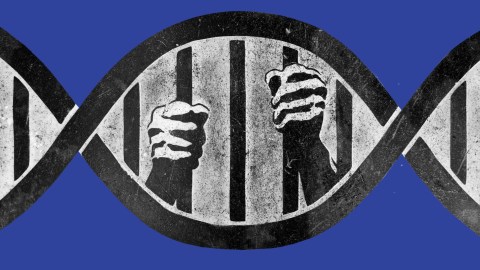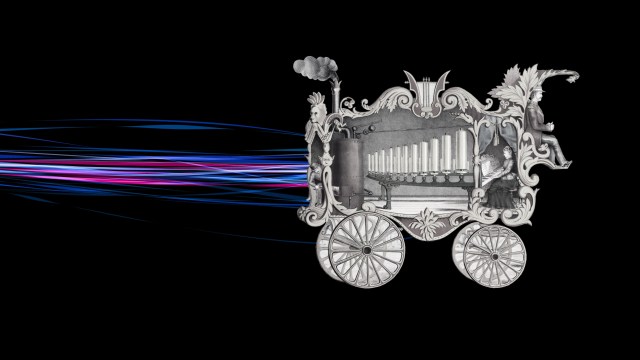Should a murderer be allowed to publish scientific papers?

- In 1992, Valery Fabrikant murdered four of his colleagues at Concordia University in Montreal. He has since published nearly 60 scientific papers from prison.
- His case highlights an increasingly common ethical dilemma in which a scientists' behaviors and beliefs are taken into account when considering the merits of their work.
- While one hopes that all scientists would be moral and upstanding individuals, this unfortunately isn't always the case. Is that a legitimate reason to suppress the knowledge they generate?
Between 1996 and 2021, Valery Fabrikant has published nearly 60 scientific papers across more than a dozen journals, and he’s done it all from a prison cell.
On August 24, 1992, the now former associate professor of mechanical engineering at Concordia University in Montreal, Quebec shot and killed four of his colleagues and wounded another. Prior to the massacre, Fabrikant’s dozen-year employment at the university had been antagonistic, to say the least. The irascible, albeit brilliant, scientist quarreled with peers and irked students. Angered at being repeatedly denied tenure, he blamed everyone around him. His anger eventually boiled over into mass murder.
Murderer by day, scientist by night
Sentenced to life in prison for his heinous crime, Fabrikant quickly turned to scientific research to pass the time. In September 1994, he submitted a paper on mathematically analyzing cracks in concrete to the International Journal of Solids and Structures. It was published in January 1996.
Upon learning of the publication, the rector of Concordia University was irate, complaining to the journal’s editor that, having lost his freedom, Fabrikant also forfeited his right to contribute to the scientific enterprise. The journal’s editor was torn, however. After all, the results in Fabrikant’s paper were sound and genuinely contributed to the field. Despite personally finding Fabrikant disgraceful, the editor did not retract his paper.
Yves Gingras, a professor in the in the history and socio-politics of science at the University of Montreal, commented on the affair in a recent article published in the Journal of Controversial Ideas:
“A professor of research ethics had also opposed this censorship by advising that individual crimes are punished by society and should not influence judgments on the validity of scientific results. A law professor added that ‘if the content of the article is sound, it should be published,’ as ‘it would be inconsistent with the goals of a university to attempt to suppress knowledge.’ Interestingly, even a former colleague of Fabrikant admitted to being ambivalent about the situation and said that, while he found it reprehensible that Fabrikant could continue to publish in prison, denying anyone the opportunity to publish valid research results went against a belief deeply rooted in the academic community.”
Should a scientist’s personal morality matter?
The Fabrikant affair may be able to inform current scientific debates. For example, it’s becoming increasingly common to take scientists’ behaviors and beliefs into account when considering their scientific work. But this seems antithetical to proper science, where truth should take precedence.
Gingras noted that the National Science Foundation (NSF) and National Institutes of Health (NIH) are now tying scientists’ moral behavior to their ability to participate in science. Any researchers guilty of harassment or sexual harassment cannot be considered for coveted government grants, and any researchers merely accused of such acts are disallowed from serving as peer reviewers. While unscrupulous individuals are by no means entitled to lucrative grants or accolades, especially if they harass others, Gingras is concerned that this moralizing could soon turn into censorship. What if a scientist’s world-changing ideas are buried or denied because he or she wasn’t a good person, or worse, because he or she simply refused to go along with enforced moralistic orthodoxy?
Gingras sees the new push by many organizations to mandate Diversity, Equity, and Inclusion statements in grant applications and published papers as a possible step towards such censorship, tantamount, as he wrote, to “a new form of loyalty oath, reminiscent and analogous — despite its different content and aims — to the one the House Committee on Un-American Activities and its president Senator Joseph McCarthy tried to impose on American university professors in 1950.”
While one hopes that all scientists would be moral and upstanding individuals, this unfortunately isn’t always the case. As difficult as it can be, it should be possible to separate a scientist’s legitimate work from their personal actions.





